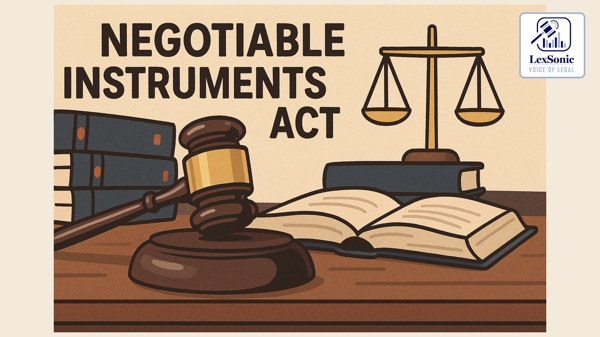In a landmark ruling showing judicial sensitivity and reasonableness in sentencing, the Supreme Court has confirmed the conviction of a 75-year-old man under Section 138 of the Negotiable Instruments Act, 1988 (NI Act), but commuted his sentence to the period already served. The Court noted that further imprisonment would be of no real utility in view of the appellant's age, unblemished record, and the long pendency of the proceedings.
Background of the Case:
The appellant, Sunil Kumar, was alleged to have borrowed an amount of Rs. 9,95,000 and given a cheque dated 13 January 2016 drawn against the State Bank of India, Bhattu Kalan Branch, Fatehabad, Haryana. The cheque was dishonoured with the remark "funds insufficient" when paid. A statutory notice was given to the appellant on 29 January 2016, which drew no response, resulting in the complainant filing Complaint No. 124/2016 before the Chief Judicial Magistrate.
Following a trial in full, the Magistrate found the appellant guilty on 18 March 2019 and sentenced him to one year's simple imprisonment along with a directive to pay compensation of Rs. 19,90,000—essentially twice the cheque amount. His appeal before the Additional Sessions Judge and revision before the Punjab and Haryana High Court were both unsuccessful, leading to an appeal before the Supreme Court.
Supreme Court's Consideration:
A Bench consisting of Justices Aravind Kumar and N.V. Anjaria considered the case and confirmed the trial court and appellate court findings in the matter of the offence itself. The Court concurred that the evidence clearly established the drawing and dishonour of the cheque in the context of Section 138 of the NI Act and concluded the concurrent findings justified.
But the Court adopted a humanitarian approach while deciding the sentence. It considered that the appellant was a 75-year-old man who had already suffered a part of his sentence and was under litigation for almost a decade. Seeing that "further incarceration does not subserve the ends of justice," the Court held that time already spent in custody would be sufficient as proper punishment.
Accordingly, on confirming the conviction and compensation order, the Bench reduced the substantive sentence to the duration already served and ordered his release forthwith.
A Humanitarian Dimension in Sentencing:
This ruling echoes the Supreme Court's consistent line of reasoning that sentencing under Section 138 must balance deterrence and rehabilitation. Though cheque dishonour is a breach of financial discipline, long-term imprisonment in instances of elderly or first-time offenders—particularly after years of legal battle—often fails to serve much rehabilitative purpose.
The Court's sensitive decision acknowledges that justice should not only vindicate the law but also take into consideration the conditions of the individual. By exempting a senior citizen from additional imprisonment while ensuring financial retribution through compensation, the Court once again asserted that punishment should both fit the crime and the individual committing it.
Conclusion:
The Sunil Kumar v. State of Haryana ruling joins the emerging series of judicial dicta that emphasize proportionality in sentencing under the NI Act. It serves as a reminder that while financial responsibility must be enforced, compassion also has an abiding place within the framework of criminal justice.
Negotiable Instruments Act, 1881

